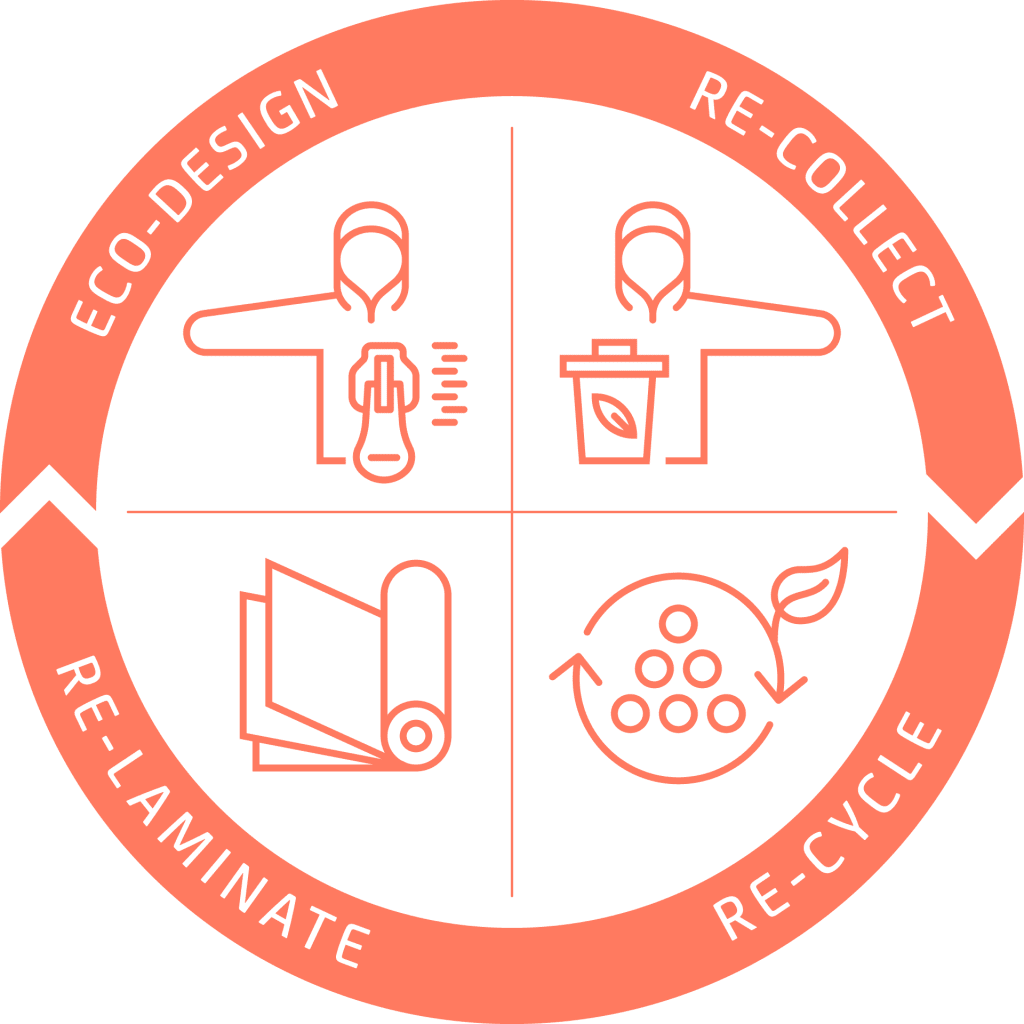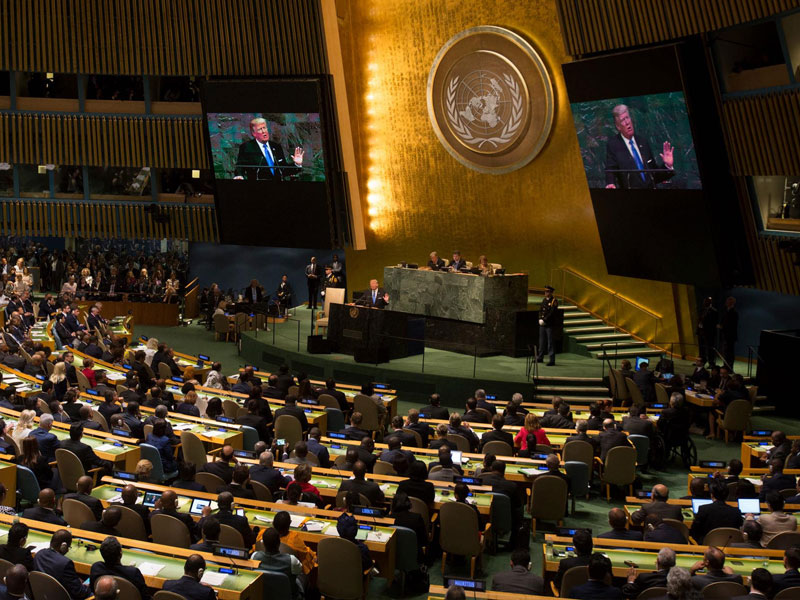The state must become a role model
- minutes reading time
The public sector is also called to rethink!

The following article shows an excerpt from Sympathy Lab episode 5, in which Anna Horschick, specialist lawyer for public procurement law at Bird & Bird, and Dr. Rüdiger Fox, CEO at Sympatex, discuss the currently visible upheaval in public procurement. At the same time, we will present an overview of current events regarding the “Supply Chain Sourcing Obligations Act” and the “Recycling Management Act”.

“Sustainability does not create extra costs, it allows less savings. We can save less at the expense of others and just not cheat like before and that’s important.”
Circular economy in public procurement
On the occasion of the General Police Equipment Exhibition & Conference® (GPEC) from 31 May 2022 – 02 June 2022 in Frankfurt am Main, Anna Horschick, specialist lawyer for public procurement law at Bird & Bird, and Dr. Rüdiger Fox, CEO at Sympatex, discussed the currently visible upheaval in public procurement in the Sympathy Lab.
The public sector refers to the entire public sector. In other words, the regional and local authorities (federal, state and local), as well as other public corporations. Public procurement includes the supply of required goods that are not produced by the public sector itself. The buyer therefore belongs to the public sector, which purchases goods or services for public use.

The total volume of public procurement in Germany is approximately 260 billion euros per year, which corresponds to about eleven percent of the gross domestic product. With this volume and the associated potential, there is an opportunity but also an obligation and increasing pressure to make procurement processes ecologically and socially sustainable. In concrete terms, this means that procurers can make their organisation’s actions more sustainable through their procurement practices and at the same time stimulate the market for sustainably produced products.

Sustainable public procurement consistently integrates social and environmental criteria into tenders for public contracts. But do those responsible know how they can contribute to a fair future? Commendably, more attention is being paid to the issue of sustainability and many important aspects are currently on the move. For example, the Supply Chain Sourcing Obligations Act and the Recycling Management Act are currently in the spotlight.
And yet Anna Horschick and Dr Rüdiger Fox see a discrepancy between theory and practice, between legislation and implementation.
Circular economy and sustainability as innovation
Germany is moving further and further towards sustainable public procurement. The reformed Closed Substance Cycle Waste Management Act now specifically stipulates that products with a lower ecological impact are to be selected. This has consequences for tenders and award procedures. Anna Horschik, who advises the public sector on textile procurement, also knows this. The central procurement offices move an enormous procurement volume in the textile sector ( > 99.612 million €/year, Leitfaden_Textilbeschaffung_210129.pdf (bmz.de)). Although the upheaval is clearly noticeable, there is still significant potential for improvement in the textile industry, says Anna Horschik.
“There is still room for improvement in the textile industry and textile consumers to reduce the massive consumption. And that’s where the Closed Substance Cycle Waste Management Act comes in. We want to have long-lasting products first, we want to have recyclable products, but we also want to repair.”
The Closed Substance Cycle Waste Management Act came into force on 1 June 2012. Its aim is to promote the circular economy to conserve natural resources and to ensure the protection of people and the environment in the generation and management of waste. The focus here is on increasing the recycling of waste.

It is interesting to note here that the proven system of product responsibility has been expanded to include the so-called duty of care. Since the end of October 2020, procurement departments in federal authorities and federally owned companies have had to implement these requirements of the new Closed Substance Cycle Waste Management Act (KrWG). It is true that the public sector has already had to ensure that ecological aspects are taken into account in the awarding of contracts (= audit obligation). But now there is no way around it: sustainable products and services must be given mandatory preference (= preference obligation). This requires the preservation of the usability of products and allows their disposal only as a last option. Also part of this is the transparency obligation, which can be enforced on the basis of a legal ordinance. This can require reports on the handling of surplus goods, returns or measures to preserve the use of products.
In addition, federal agencies and institutions in Germany will in future be obliged to explicitly give preference in purchasing to products that are resource-conserving, low-waste, repairable, low-pollutant and recyclable, provided that no unreasonable additional costs are incurred.

“As long as I allow incineration as an approved and sometimes preferred recycling process in a circular economy law, we haven’t solved the problem.”
The Closed Substance Cycle Waste Management Act
- Since 01.07.2012 – Derived from EU legislation.
- Implementation of the legal framework for the Federal Government to implement waste minimisation measures, collection systems and the circular economy.
- Implementation of the EU the waste hierarchy:
- prevention
- preparation for re-use
- recycling
- other recovery, especially energy recovery
- disposal.
- The technical possibilities, economic acceptability and social consequences of the measure shall be taken into account.
- Waste producers or holders are obliged to recover their waste.
- Implementation of target values for reuse and recycling of municipal waste (50% by 1.1.2020 … 65% by 1.1.2035).
“From our point of view, the textile sector in particular is an important area for connecting points in the field of sustainability, for a look at human rights and for the entire supply chain, because it also extends into areas where human rights are not particularly important.”
Corporate responsibility
Millions of people around the world live in hardship because minimum social standards are disregarded. To change this, the German Bundestag passed the Supply Chain Due Diligence Act (LkSG) on 11 June 2021. The aim of the law is to improve the international human rights situation by establishing requirements for the responsible management of supply chains. The law will be in force from 1 January 2023. For the first time, the Supply Chain Due Diligence Act regulates corporate responsibility for the observance of human rights in supply chains by setting clear requirements for the due diligence obligations of companies and thus creating legal certainty for companies and workers.
The Supply Chain Sourcing Obligations Act
- For German companies (or domestic subsidiaries) with at least 3,000 employees (>1,000 from 2024).
- Need to establish a risk management system, take preventive measures, conduct due diligence and establish a grievance mechanism to prevent human rights violations in their direct and indirect supply chains
- Risk of a fine or exclusion from public procurementSupply Chain Due Diligence Act (valid from 01.01.2023).
- For German companies (or domestic branches) with at least 3,000 employees (>1,000 from 2024).
- Need to establish a risk management system, take preventive measures, conduct due diligence and establish a grievance mechanism to prevent human rights violations in their direct and indirect supply chains
- Risk of a fine or exclusion from public procurement.
The obligations to be fulfilled are graded according to the actual level of influence, depending on whether the company is its own business unit, direct contractor or a more indirect supplier. Initially, the law applies to companies with 3,000 or more employees in Germany. The Supply Chain Due Diligence Act does not yet apply throughout the EU.
There are various due diligence obligations, ranging from risk monitoring to a hotline through which those affected can contact the company throughout the entire supply chain. The company, in turn, is obliged to build in mechanisms to involve the parties downstream in the supply chain and to pass on obligations to the downstream suppliers. This makes the law interesting for companies with less than 3,000 employees. Via the trickle-down effect, all parties will be jointly obligated. For procurement, this is important insofar as there are possibilities for exclusion from public procurement.
The substances and chemicals to be used for textiles are also influenced by the Supply Chain Sourcing Obligations Act. Substances that are harmful to humans affect not only the consumer who wears the textiles, but also all those who manufacture the textiles.
“We need a unified legal basis so that there is a level playing field for companies of different sizes and locations.”
Our current economic construct primarily pursues economic interests. Collateral damage, especially in more distant countries, is currently not punished due to legal loopholes. Dr. Rüdiger Fox sees the passing of the two laws, the Supply Chain Sourcing Obligations Act and the Closed Substance Cycle Waste Management Act, as important initiatives to close these gaps.
“Something has started to move there. And actually the two laws are incredibly well representative of what is coming: the Circular Economy Act is the ambition to actually move into a circular industry. That’s inevitable when you look at resource use, but will still be a big task.”
The second important step is to bring back responsibility. Because while responsibility was delegated to distant countries due to a mostly long supply chain, everything that happens on the way to the product must be disclosed due to the transparency that is now required. Furthermore, Dr. Rüdiger Fox is convinced that two fundamental next steps are needed. The one movement that needs to come now, and that has started, is what is coming from the EU. What is needed is standardisation beyond the individual countries. However, it is not very effective if each country does different things operationally. Instead, there needs to be a legal framework.
The second is to identify and close the missing gaps in the law. For at present, incineration remains in a circular economy law as an approved and sometimes preferred recycling method. But this is no way to solve the problem. Other details are also still unclear in the law. For example, corporate responsibility is very much in the area of risk assessment at the moment. Dr. Rüdiger Fox is convinced that we have to distinguish between the social and the ecological. In the ecological, there are far more possibilities, because you can prove the missteps in the final product. And there lies the next step: radicalisation and Europeanisation, which is currently necessary and relatively soon.
“We need standardisation beyond the individual countries”

The fact that public contracts are subject to public procurement law and must be put out to tender above a certain volume is intended to ensure that the money is not only used economically, but also in an ecologically sensible way. Taking “ecological” aspects into account is possible at all levels of an award procedure: within the framework of the suitability criteria, in the definition of the subject matter of the contract, in the technical specification in the service description, as an award criterion or as an additional implementation provision. What sounds simple is more difficult in practical implementation, because the procedure is highly formalised.
“From a business perspective, procurement is the strictest focus. Due to the exclusion of tendering.”
Sympathy Lab Episode 5
Many important aspects are currently in motion. Not only companies and the public sector, but also every individual can contribute by linking what they do with sustainability. First, however, an awareness must be created. To make the topic of sustainability in public procurement more present, Sympathy Lab episode 5 was recorded and is available on YouTube and the website www.sympathy-lab.de at any time.

